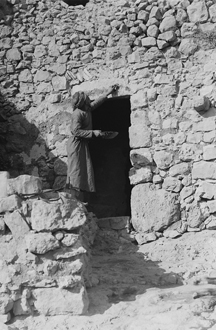“The Israelites at the time of the exodus knew they had escaped the night of God’s judgement through trusting in the blood of the Passover lambs on their doorposts. Notice that the blood was to be placed on the outside of their houses. The blood was for God to see, not for their benefit. The blood was not to make them feel good or feel safe. The blood was not for their feelings at all. The blood was to satisfy God. It was for his eyes alone.God said, ‘When I see the blood I will pass over you’ (Exodus 12:13). We have peace, not because we feel good, but because God is satisfied with the blood. Only He can evaluate the worth of the lamb. Because He is satisfied, we have peace.”
Sunday, May 29, 2011
Friday, May 27, 2011
A noble hiding-place for lame legs
"So Mephibosheth dwelt in Jerusalem: for he did eat continually at the king's table; and was lame on both his feet."
2 Samuel 9:13
Mephibosheth was no great ornament to a royal table, yet he had a continual place at David's board, because the king could see in his face the features of the beloved Jonathan.
Like Mephibosheth, we may cry unto the King of Glory, "What is Thy servant, that Thou shouldst look upon such a dead dog as I am?" but still the Lord indulges us with most familiar intercourse with Himself, because He sees in our countenances the remembrance of His dearly-beloved Jesus. The Lord's people are dear for another's sake. Such is the love which the Father bears to His only begotten, that for His sake He raises His lowly brethren from poverty and banishment, to courtly companionship, noble rank, and royal provision. Their deformity shall not rob them of their privileges. Lameness is no bar to sonship; the cripple is as much the heir as if he could run like Asahel. Our right does not limp, though our might may. A king's table is a noble hiding-place for lame legs, and at the gospel feast we learn to glory in infirmities, because the power of Christ resteth upon us.
Charles Spurgeon;
Morning and Evening, May 27th (Morning Reading)
Monday, May 16, 2011
What has the cross accomplished?
By nothing else except the cross of our Lord Jesus Christ has death been brought low:
The sin of our first parents destroyed
Hell plundered,
Resurrection bestowed,
The power given us to despise the things of the world,
Even death itself,
The road back to the former blessedness made smooth,
The gates of paradise opened,
Our nature seated at the right hand of God,
And we made children and heirs of God.
By the cross all these things have been set aright…
It is a seal that the destroyer may not strike us,
A raising up of those who lie fallen,
A support for those who stand,
A staff for the infirm,
A crook for the shepherded,
A guide for the wandering,
A perfecting of the advanced,
Salvation for soul and body,
A deflector of all evils,
A cause for all goods,
A destruction of sin,
A plant of resurrection,
And a tree of eternal life.
- St. John of Damascus
Tuesday, May 3, 2011
What's the story really about?

Robert Stein includes in his book on interpreting the Bible a dialogue from a home bible study. The group read from the opening verses of Mark and then shared their thoughts on what it meant. The first offered, “What this passage means to me is that everyone needs to be baptised, and I believe that it should be by immersion.” A second responded, “I think it means that everyone needs to be baptized by the Holy Spirit.” A third reacted honestly, “I am not exactly sure what I should be doing.” A fourth suggested that the passage meant that if one is to meet God, one needs to get away and commune with nature in the desert. These bible students were sharing what the passage meant to them, but Mark is not talking about us-what can happen to us or what we should do.
His emphasis is on the One who comes who is more powerful than John, who will baptise with the Holy Spirit, who is announced from heaven, and who is tested by Satan in the desert. Jesus is the long-promised One, the Messiah, the son of God, the bearer of the Spirit, and the victor over Satan, the passage is not about John, the nature or mode of baptism, meeting God, or fighting off Satan. Mark introduces us here to Jesus, the central character in all that follows. Our interpretation must stay centered in Him and what His coming means.
Reply
Edit
David E. Garland
NIV Application Commentary, Gospel of Mark pg 51
Subscribe to:
Posts (Atom)

